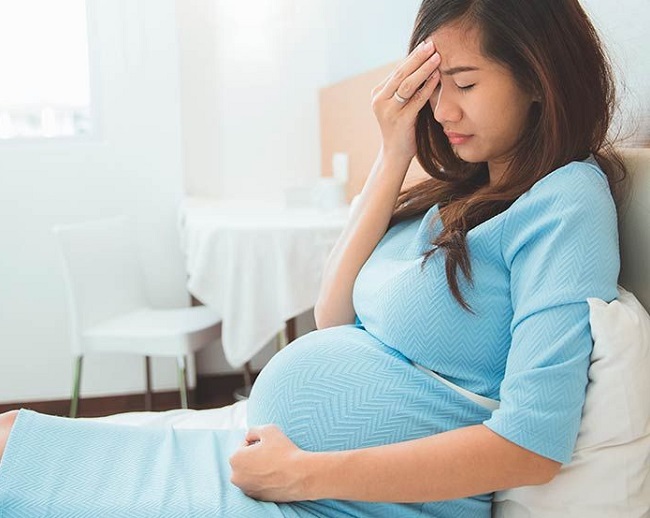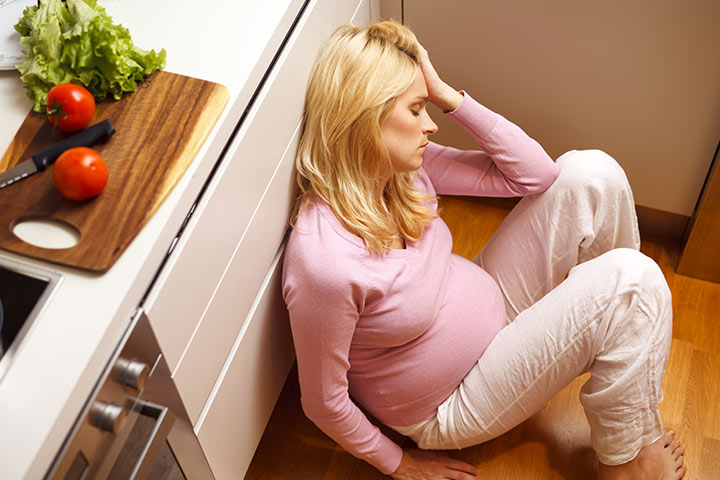CAREFUL LADIES! Stress during pregnancy may affect baby's sex
Maternal stress during pregnancy can affect fetal and child development as well as birth outcomes, a new study has found.

Washington DC: Maternal stress during pregnancy can affect fetal and child development as well as birth outcomes, a new study has found.
The study conducted by researchers at Columbia University Vagelos College of Physicians and Surgeons and NewYork-Presbyterian identified the types of physical and psychological stress that may matter most. The study was published in the journal PNAS, the Proceedings of the National Academy of Sciences.
Also Read: Special occasion drinking during pregnancy is harmful
"The womb is an influential first home, as important as the one a child is raised in, if not more so," said study-lead Catherine Monk. Because stress can manifest in a variety of ways, both as a subjective experience and in physical and lifestyle measurements.

The study suggests that pregnant women experiencing physical and psychological stress are less likely to have a boy. On average, around 105 males are born for every 100 female births. But in this study, the sex ratio in the physically and psychologically stressed groups favoured girls, with male-to-female ratios of 4:9 and 2:3, respectively.
"This stress in women is likely of long-standing nature; studies have shown that males are more vulnerable to adverse prenatal environments, suggesting that highly stressed women may be less likely to give birth to a male due to the loss of prior male pregnancies, often without even knowing they were pregnant," said Monk.
Also Read |
Stressed pregnancy might hinder infants' brain development
Also Read: Here's how smoking during pregnancy can affect daughter's fertility!
Physically stressed mothers, with higher blood pressure and caloric intake, were more likely to give birth prematurely than unstressed mothers.
Among physically stressed mothers, fetuses had reduced heart rate-movement coupling -- an indicator of slower central nervous system development -- compared with unstressed mothers.

Psychologically stressed mothers had more birth complications than physically stressed mothers.
The researchers also found that what most differentiated the three groups was the amount of social support a mother received from friends and family. For example, the more social support a mother received, the greater the likelihood of her having a male baby.
Also Read: Parental stress during pregnancy linked to behavioural problems in toddlers
Also Read |
Persistent depression alters brain
When social support was statistically equalized across the groups, the stress effects on preterm birth disappeared. "Screening for depression and anxiety are gradually becoming a routine part of a prenatal practice," added Monk. "But while our study was small, the results suggest enhancing social support is potentially an effective target for clinical intervention."

An estimated 30% of pregnant women report psychosocial stress from job strain or related to depression and anxiety, according to researchers. Such stress has been associated with increased risk of premature birth, which is linked to higher rates of infant mortality and of physical and mental disorders, such as attention-deficit hyperactivity disorder and anxiety, among offspring.
Also Read: Parental stress during pregnancy linked to behavioural problems in toddlers
How a mother's mental state might specifically affect a fetus was not examined in the study. "We know from animal studies that exposure to high levels of stress can raise levels of stress hormones like cortisol in the uterus, which in turn can affect the fetus," Monk explained.
"Stress can also affect the mother's immune system, leading to changes that affect neurological and behavioural development in the fetus. What's clear from our study is that maternal mental health matters, not only for the mother but also for her future child. (ANI)
 Dynamite News
Dynamite News 